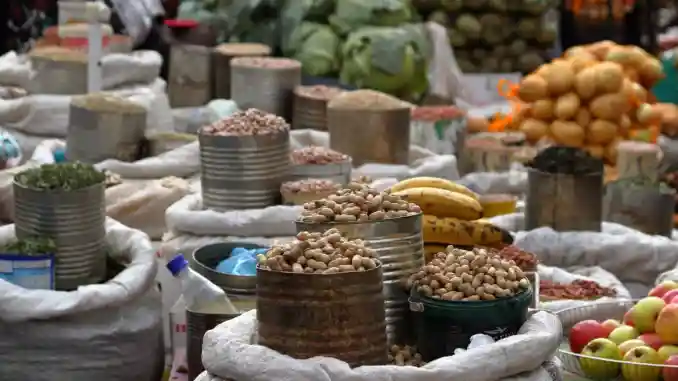
ZIMBABWEANS are finding more benefits of consuming pulses, as health challenges are forcing people to go back to traditional foods.
As the country marked the World Pulses Day on February 10, awareness campaigns on benefits of consuming pulses were stepped up.
“As we lock down, let us not lock down on nutrition,” a jingle by local singer Bob Nyabinde says.
The jingle goes on to advise Zimbabweans to eat healthy food.
“We think pulses are for the poor because we have seen them being donated by food relief agents to the poor and those starving, during times of drought,” Rumbidzayi Mukori, a dietician based in Harare, told Anadolu Agency.
Mukori added: “It takes time for stigmatisation to disappear while raising awareness, also you have less taste buds as you grow older and that’s where we come in as dieticians to help people prepare foods in a way that will make them love pulses again.
“We have seen some improvement by doing so.”
The World Food Programme (WFP) revealed that the consumption of pulses is, indeed, on the increase in Zimbabwe.
- Chamisa under fire over US$120K donation
- Mavhunga puts DeMbare into Chibuku quarterfinals
- Pension funds bet on Cabora Bassa oilfields
- Councils defy govt fire tender directive
Keep Reading
“Production of sugar beans, African peas and groundnuts has been increasing in Zimbabwe as evidenced by the crop assessment of 2021, with production increases ranging between 108% to 142% compared to year 2020.
“These are mainly produced for domestic consumption,” Tatenda Macheka, WFP assistant spokesperson said.
Pulses are the dried seeds of legumes and they are rich in protein, fibre and minerals and low in fat, making them a great addition to any diet.
Nutritional benefits “We join the world in commemorating World Pulses Day as they play an important role in our programmes, in saving lives and changing lives,” Tatenda Macheka from WFP said, adding: “World Pulses Day provides an opportunity to raise awareness about the nutritional benefits of pulses as part of sustainable food production.”
Pulses include baked beans, red, green, yellow and brown lentils.
Black-eyed peas, garden peas, runner beans, chickpeas, broad beans and kidney beans also fall in the pulses family and are common in most African countries, including Zimbabwe.
“Pulses Day means a lot to us Zimbabweans because of the benefits we get from them,” Ivan Craig, a top seed production expert, told Anadolu Agency.
According to Craig, the oil found in some pulses is essential for a healthy heart, lowering of blood pressure and diabetes.
Meanwhile, Mukori hinted that black-eyed pea, also known as cowpea, is one of the healthiest in the world and Zimbabweans grow them in abundance.
With increasing food prices and rising unemployment amid the pandemic, the cost of living in Zimbabwe has become unbearable.
Some people now can no longer afford meat and are opting for pulses which are regarded as the best alternatives for proteins.
A visit to the country’s largest food market Mbare Musika in Harare also revealed the cost benefits of consuming pulses.
“I have been a trader of these products for nearly 10 years now but I am beginning to see the demand for pulses increasing especially for those with some chronic illnesses,” a trader said.
Richard, another trader, said: “It used to take me nearly a week to sell 50 kilogrammes of beans or cowpeas … now I can sell close to 120 kilogrammes, the demand is high, I think people are finding benefit in them now.”
Macheka said high prices for animal protein found in red meat has forced many people to substitute meat with pulses as they are the major source of vegetable protein.
According to Craig, pulses are now an economical way of maintaining a healthy body as, “they act as anti-inflammatory, boost metabolism and immune system, and works as laxative and reduces the risk of bowel cancer.” — Anadolu News











